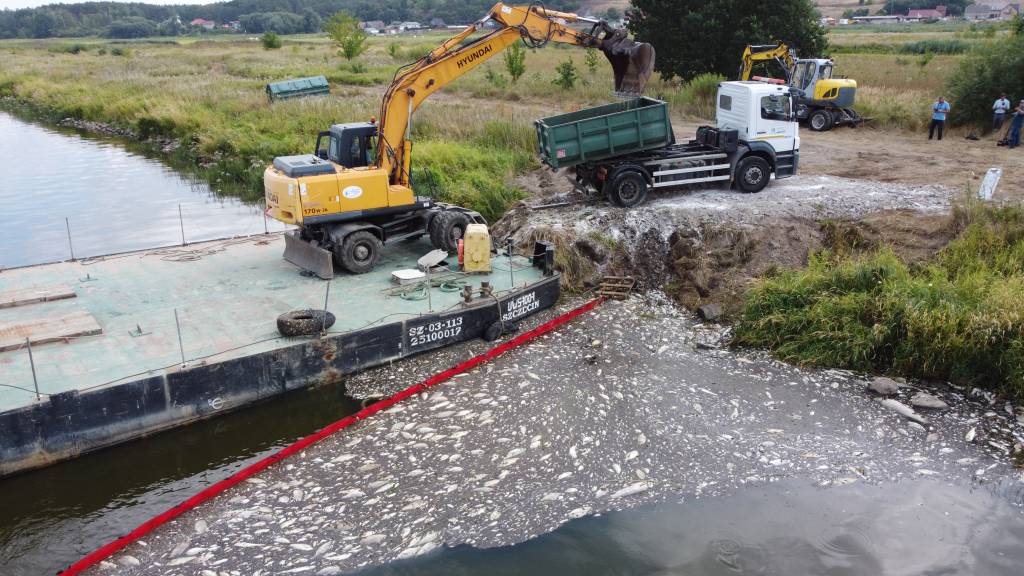
AFP
ONS News•
Since the start of the massive fish kill in Poland, the country’s firefighters have recovered nearly 160,000 kilograms of dead fish from the water. Most of the carcasses were found in the Oder, but dead fish have also been found in the small Ner river in recent days. It flows through the center of the country and is not connected to the Oder.
On the German side of the Oder, 36,000 kilos of dead fish have now been removed from the water in the Land of Brandenburg. The ecological disaster has occupied Poland and Germany for weeks and the cause has not yet been determined.
Polish Prime Minister Morawiecki spoke last week about “large quantities of chemical waste” which was reportedly dumped in the Oder, but in recent days researchers have reported that a species of toxic algae may be responsible for the mass fish kills. This too has not yet been definitively established; it can be a combination of factors.
According to the German broadcaster ARD between August 7 and 9, too high a value of a herbicide was measured in the Oder. The concentration determined is not directly lethal to fish, but the substance may have been present in a less diluted state upstream.
Algae species
The algae species is present in water samples from the Polish and German sides prymnesium parvum established. It normally only occurs in brackish water and the Oder does not. However, a higher than normal salt content was found at a measuring station in Frankfurt an der Oder for two weeks. A German aquatic ecologist believes that a substance with a high salt content has been released.
Further surveys will be carried out in Poland in the coming days, said the Polish Minister of the Environment. She promised support for businesses affected by fish kills and water pollution. The algae is not dangerous for humans.
Dozens of forks
“I never thought I would experience such a disaster,” the mayor of Widuchowa in Poland told Reuters news agency. “It’s something you see in disaster movies.” Residents of his home pulled the dead fish out of the water with dozens of pitchforks. The mayor spoke about the most difficult five days of his life.
Meanwhile, researchers from the German state of Brandenburg have also found healthy animals. In addition to fishing, this includes crayfish, mussels and shrimp. This could be a sign that the ecosystem is recovering quickly.

APE
The Polish authorities are now being criticized for their alleged too late intervention. At the end of July, for example, a large quantity of dead fish was discovered near the Polish town of Olawa. It should be noted that it is not clear if this is related to the massive fish kills in the following weeks. What is certain is that earlier this month the head of the Polish environmental inspectorate was fired for failing to respond adequately.
The German authorities believe that the communication on the other side of the border also leaves something to be desired. “Six days before the fish died here, fish died in Poland and we weren’t informed,” the Prime Minister of Brandenburg said. He is “deeply disappointed” with the Polish government.

“Infuriatingly humble social media ninja. Devoted travel junkie. Student. Avid internet lover.”
 DodoFinance Breaking News Made For You!
DodoFinance Breaking News Made For You!